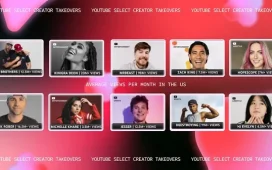Channel 4 has been accused of ignoring the wishes of campaign organisations representing those whose images have been digitally turned into pornography and shared online against their will.
The broadcaster’s new documentary, Vicky Pattison: My Deepfake Sex Tape, saw it consult groups representing survivors of online image abuse, before having its reality star presenter create and release an AI-generated explicit film of herself – despite groups saying they specifically advised it against doing so.
“I don’t think that someone that really intricately understood the effect of this abuse on someone would do this if they actually had compassion for the survivors,” said Jodie, a campaigner who was 23 when her best friend sent her Instagram photos to an “incel” forum so that they could be turned into pornographic deepfake images. She is now part of a group campaigning for a consent-based law to tackle deepfake abuse.
“Survivor organisations strongly advised against it when they were approached by producers. So it’s just in really, really poor taste that they sought out advice and then ignored it completely.”
The Guardian has seen communications between campaign groups in which they discuss telling Potato TV, the production company behind the show, that releasing a deepfake video would be harmful to their cause, only to be informed that it would nonetheless happen.
Organisations’ objections include the fear that releasing a well-publicised deepfake video would drive traffic to the exact deepfake sites that they are campaigning against – as well as being disrespectful to women who have had their images turned into pornography against their will.
“You wouldn’t go and do a documentary where you get into a physically violent and abusive relationship to experience how it feels. So why is it acceptable as a premise for a documentary to do this with online harm?” said one campaigner whose group was involved in the initial research stages of the documentary – before they realised that it would involve releasing a deepfaked pornographic video.
Channel 4 commented: “We understand that there have been varying views on this approach. In this documentary, Vicky aims to demonstrate how simple it is to create explicit deepfake content and raise awareness of how accessible this content is and how it can proliferate online. She also wanted to experience, as closely as possible, the feelings, vulnerabilities and concerns that arise when one becomes a victim of deepfake pornography.”
One of the major concerns of campaign organisations is that Channel 4’s approach fundamentally misunderstands the trauma of being subject to this imagery.
“The essence of these deepfakes is that they’re not consensual. You don’t get to choose when you publish it and then trace it around the internet,” said Madelaine, a survivor whose Image Angel software tries to stop people sharing images without permission.
“It’s about having no choice – that’s where the pain comes from. So to try to recreate that in a very measured way is just pointless. To see that someone had done it to themselves in an attempt to see how it felt was so insulting – was just so gross.”
While Channel 4 point out that its documentary includes testimony from survivors of image-based abuse, “to ensure that victim’s stories are at the forefront of the purpose of the programme”, campaigners feel that this does not excuse the release of Pattison’s video.
“If the experience of anyone who’s gone through this abuse isn’t compelling enough and isn’t getting the point across how painful and how hurtful it is,” said Madelaine, “then the interview is not asking the right questions.”
The campaign groups stress that they feel sympathetic towards Pattison, who they did not believe had the final editorial decision.
“The decision to create this video, presumably, has been made by Channel 4,” said Jodie.
“If you’re going to be in this space, just be respectful that there are real people at the heart of this issue. Because I don’t want people to then pile on to Vicky. I don’t want things to move away from the issue to being: ‘Influencer gets bashed and takes herself off Instagram,’ or whatever that story then could turn into.”
A Channel 4 spokesperson said: “Channel 4 has a long history of complex and provocative programming, and has a remit to explore difficult topics. The issue of deepfake porn is a disturbing and escalating one, and this documentary aims to bring this problem into focus, by providing explanations as to how this content spreads online, hearing from expert voices and real victims, and providing support and guidance for any viewers who may find themselves affected by the themes of the programme.”












